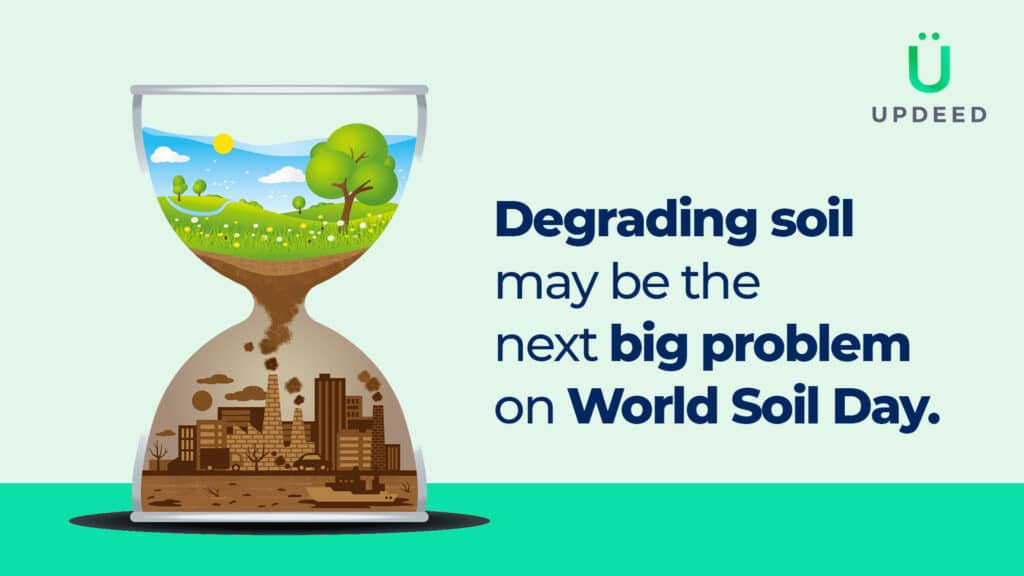Degrading soil may be the next big problem

Most people assume soil will always exist and take it for granted. But it is not at all the case. Growing 0.4 inches of soil requires more than a thousand years.
Soil pollution was of little concern until the Food and Agriculture Organization of the United Nations (FAO) published the groundbreaking study Soil Pollution: A Hidden Reality four years back. Additionally, the poor soil quality makes cultivating crops more challenging over time. Around 40% of the world’s population, or at least 3.2 billion people, are impacted by land deterioration and soil deterioration.
The start
Every year we celebrate World Soil Day on December 5, giving us a reason to discuss the issue. But, before diving into the issue, the need is to look at its history first.
Back in 2014, U.N. General Assembly declared December 5 as the official World Soil Day. The late King of Thailand, King Bhumibol Adulyadej, who authorised the celebration, also had his formal birthday on that day. It honours his memory and his extraordinary efforts to make the day possible.
The theme “Soils: Where food begins” for World Soil Day 2022 aims to increase public awareness of the significance of preserving healthy ecosystems and human wellbeing.
Issues at large
Although soil degradationâthe loss of the physical, chemical, or biological properties that support lifeâis a natural process, human activity is speeding up this process.
In addition to erosion caused by deforestation and development, pollution destroys the microbiological life in the soil, and soil compaction brought on by farming and urbanisation suffocates the earth’s atmosphere and prevents it from absorbing water. In the meantime, climate change is causing the ground to dry out.
To that end, UNEP, FAO, and other partners launched the project – United Nations Decade on Ecosystem Restoration 2021-2030. The project is a global call to action to scale up the restoration of terrestrial, coastal, and marine ecosystems over the next ten years, led by UNEP, FAO, and partners. This involves advocating for environmentally friendly methods of enhancing soil management.
Save soil to save your future
Healthy soil is the foundation of a way of life that supports farmers and communities. Healthy soil provides excellent crops that deliver a good income, making it possible for families to prosper. But the story doe not end here.
The food we eat is grown in soil, which filters the water we drink and absorbs the carbon dioxide that drives climate change. Compared to all terrestrial plant life in the world, the soil is the second-largest carbon sink behind the ocean.





